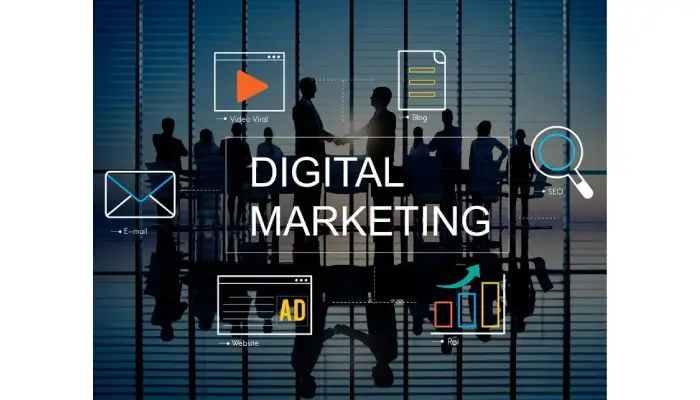A marketing agency is a firm that helps businesses promote their products and services through various means. There are different types A, like full-service agencies offering everything from strategy to analytics, or specialized ones focusing on areas like public relations. Key services can range from market research to content creation and social media management. Choosing the right agency involves defining your objectives and considering their expertise in your industry. It’s also important to evaluate ROI by looking at performance analytics. With trends shifting towards digital solutions and data-driven strategies, the landscape of marketing agencies continues to evolve rapidly, adapting to new challenges ahead.
1. What is a Marketing Agency?
A marketing agency is a business that specializes in helping other companies promote their products or services. Best marketing agency, including advertising, public relations, digital marketing, branding, and market research. Essentially, they serve as a partner to businesses, navigating the complexities of the market to maximize visibility and engagement.
Marketing agencies can vary significantly in their focus and structure. For instance, a full-service agency might handle everything from strategy to execution, while a digital marketing agency would concentrate specifically on online strategies like search engine optimization (SEO) and social media marketing. Specialized agencies may focus on specific areas, such as public relations or branding, offering deep expertise in those niches. Additionally, consulting firms provide strategic advice but may not engage in the actual execution of marketing campaigns.
The key services offered by these agencies can include market research, which helps clients understand trends and consumer behavior, and brand development, where they help to create a strong identity for the business. Content creation is another essential service, ensuring that companies have engaging material to share across various platforms. Overall, marketing agencies play a crucial role in shaping how businesses connect with their audiences.

2. Different Types of Marketing Agencies
Marketing agencies come in various forms, each tailored to meet specific business needs. Understanding these types can help you choose the right partner for your marketing efforts.
Full-service agencies are the all-in-one solutions. They provide a wide array of services, from crafting marketing strategies to executing advertising campaigns across multiple channels. For example, a full-service agency might manage everything from social media posts to TV ads, ensuring a cohesive brand message.
On the other hand, digital marketing agencies specialize in online strategies. They focus on aspects such as search engine optimization (SEO), pay-per-click (PPC) advertising, and social media marketing. If your business aims to enhance its online presence, a digital marketing agency can help you navigate the digital landscape effectively.
3. Key Services Offered by Agencies
Marketing agencies offer a variety of essential services designed to help businesses grow and succeed. One of the fundamental services is market research, which involves analyzing market trends and consumer behavior to inform marketing strategies. This helps businesses understand their target audience and competitive landscape.
Brand development is another crucial service, where agencies create and manage a brand’s identity and positioning in the market. This includes everything from designing logos to crafting brand messages that resonate with consumers.
4. How to Choose the Right Agency?
Choosing the right marketing agency is crucial for your business’s success. Start by defining your objectives. Whether you aim for brand awareness or lead generation, knowing your goals will guide your search. Next, check the agency’s expertise. Look for those with a solid track record in your industry, as they will understand your unique challenges.
Reviewing portfolios is essential. Examine past work and case studies to evaluate their creativity and effectiveness. This gives you insight into their style and how they approach problems. Additionally, consider the culture fit. An agency that shares your values and vision will likely collaborate more effectively with your team.
For example, if your brand is playful and innovative, a more traditional agency might not be the best match. A good fit can foster better communication and more aligned strategies, leading to a stronger partnership.
5. Understanding ROI in Marketing
Return on Investment (ROI) is a crucial metric for evaluating the effectiveness of marketing efforts. It helps businesses determine whether their marketing strategies are yielding profitable returns. Essentially, ROI measures the financial return on every dollar spent on marketing. To calculate ROI, you can use the formula:
[ \text{ROI} = \frac{\text{Net Profit}}{\text{Cost of Investment}} \times 100 ]\n\
For instance, if a company spends $10,000 on a campaign and generates $50,000 in revenue, the ROI would be 400%. This impressive figure indicates that for every dollar invested, the company earned four times its initial investment.
A good marketing agency will provide detailed analytics and reporting to track performance, making it easier for businesses to understand their ROI. They may use tools like Google Analytics to monitor website traffic, conversion rates, and customer engagement. By analyzing this data, you can pinpoint which strategies are working and which need adjustment.
Moreover, understanding ROI also helps in setting realistic goals. If an agency can demonstrate a consistent and positive ROI, it builds trust and validates their approach. This way, businesses can make informed decisions about future marketing investments, ensuring that they allocate resources to the most effective channels.
6. Current Trends in Marketing Agencies
Marketing agencies are constantly evolving to keep pace with the fast-changing landscape of consumer behavior and technology. One major trend is the increased focus on data analytics. Agencies are now using sophisticated tools to gather and analyze data, which helps them create more targeted marketing campaigns. For example, by analyzing consumer purchase patterns, an agency can help a retail client identify the best times to launch promotions.
There’s also a growing demand for digital expertise. As more businesses shift their advertising budgets from traditional media to digital platforms, agencies are expanding their capabilities in areas like social media marketing, search engine optimization (SEO), and content marketing. This shift means that agencies need to be well-versed in the latest digital tools and trends to effectively reach audiences online.
7. Challenges Marketing Agencies Face
Marketing agencies encounter several challenges that can affect their effectiveness and client satisfaction. One major hurdle is keeping up with technology. The marketing landscape is constantly evolving, with new tools and platforms emerging regularly. Agencies must commit to ongoing training and adaptation to leverage the latest innovations effectively.
Data privacy concerns also present significant obstacles. With stricter regulations on consumer data collection, agencies must navigate these complexities carefully to build trust while executing effective campaigns. This often involves revising strategies to ensure compliance without sacrificing performance.
Moreover, competition is fierce. The rise of freelance marketers and niche boutique agencies has intensified the marketplace. Larger agencies must differentiate themselves through unique offerings and exceptional service to retain clients. For example, a full-service agency might emphasize its ability to deliver a seamless, integrated approach that smaller competitors can struggle to match.
8. The Future of Marketing Agencies
As technology continues to advance, the future of marketing agencies is poised for significant transformation. One major trend is the integration of artificial intelligence (AI) and machine learning into marketing strategies. These technologies can analyze consumer behavior more accurately than ever before, allowing agencies to develop highly targeted campaigns. For example, AI-driven tools can predict customer preferences and tailor marketing messages to fit individual needs, enhancing engagement and conversion rates.
Automation is another important aspect that will shape the future. Agencies are using automated tools for tasks like email marketing, social media posting, and ad placements. This not only increases efficiency but also frees up creative teams to focus on strategy and content creation, leading to more innovative campaigns.
Additionally, the emphasis on data privacy will likely grow, requiring agencies to adopt transparent practices in how they collect and use consumer data. This could mean building trust through clear communication and ethical marketing practices, which can set successful agencies apart from their competitors.

Mary Burns is a dedicated writer focusing on health and fitness topics. With a passion for promoting wellness and vitality, Mary shares her knowledge and expertise through engaging and informative blog posts.




